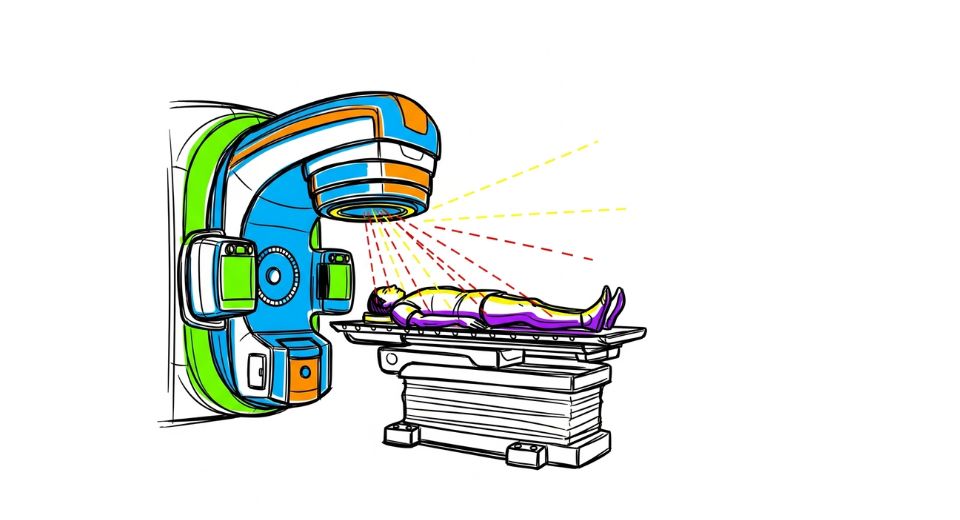
Sep 19, 2025

The global radiation therapy market by Metastat Insight is directly in line with the increased demand for effective and targeted treatment practices in current healthcare practice. Cancer is a disease that affects families across socioeconomic status, and treatment methods have evolved from mass and invasive treatments to methods that aim to achieve effectiveness without compromising quality of life. In such a setting, radiation therapy has come into the limelight as medical systems, clinicians, and patients alike look to advanced yet versatile alternatives. The value does not only present itself in clinicals but in how it transforms the patient experience, offering precision therapy without undue stress.
Provision of healthcare is confronted with challenges that emanate from increased complications in long-term conditions to deal with, shortages in some areas, and the need to implement innovations that have measurable returns.
When providers are shifting away from formulaic care, accurate care is much more in demand. Radiation therapy is squarely an answer to this demand, with technology to heal cancers precisely, and with less collateral harm to immediate healthy tissue. The availability of this technology to changing clinical practice makes it a requirement in today's treatment landscape.
In its most basic form, radiation therapy involves concentrated energy that is directed toward cancer cells, disrupting their growth and replication capabilities. Conceptually simple, its implementation is advanced, involving imaging, planning equipment, and delivery machinery to achieve precision.
Its value lies in its local ability to target treatment, hence able to accommodate a broad spectrum of cancer in all stages. What makes radiation therapy today different is the degree of customisation it offers every plan is personalized to the individual case, complementing surgery and drugs as needed. Reducing treatment side effects and maximizing comfort, the technology optimises both clinical and patient results.
Ongoing improvement has spurred the development of radiation therapy. Gradual early adoption only provided differential control over dose and target with early systems. Technological innovation has progressively advanced the systems into complex instruments, fusing cutting-edge imaging with computer-assisted precision.
From linear accelerators to adaptive treatment planning, it has been a long and dramatic journey, with clinicians now able to provide results previously believed to be impossible. These developments have increased confidence in health circles, which has seen further integration into standard care practices and further development as an oncology pillar.
Adoption is divergent across the world with some areas showing more instances under the influence of healthcare infrastructure and investment in advanced technologies. Developed markets indicate extensive take-up through trained personnel and available facilities. Conversely, growth is being driven more by the developing world, driven by government policies, collaborations with global health agencies, and increasing disease incidence for which radiation therapy is effective. The opportunity is bridging the industrialized-developing country divide, providing more balanced access to advanced treatment modalities.
Despite the great progress, there are some challenges. Spends on infrastructure, requests for highly skilled experts, and differences in regulatory systems can hinder take-up in certain areas. Competition between treatment types also influences policy and clinical decision-making. But these are also opportunities for innovation.
Technology is lowering the cost more, digital platforms are automating planning, and cooperative models are underway to provide treatment to underserved populations. artificial intelligence and data-driven medicine to radiation therapy holds more promise, with new opportunities to build on precision and further tailor treatment.
Radiation therapy has worldwide implications. Where medicine seeks to improve survival rates without sacrificing quality of life, technology meets both needs at once. Sustainability is also an issue that comes into play, with innovations improving resource utilization and reducing treatment duration. The requirement for digitalization in medicine also increases its usefulness, marrying radiation therapy with a broader trend toward networked, patient-centric care. As the health care sector touches a record high of problems, ranging from scarcity of resources to increasing demand, its potential to determine future directions cannot be overemphasized.
Metastat Insight, in defining the radiation therapy market, reveals not only a medical sector but a strategy for change redrawing how societies confront cancer. Precision, innovation, and hope characterize the market in revealing a glimpse of the future where healing is not only potent but also humane, sustainable, and accessible to the world.
Drop us an email at:
Call us on:
+1 5186502376
+91 73850 57479